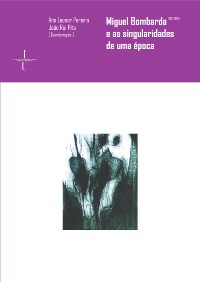Please use this identifier to cite or link to this item:
https://hdl.handle.net/10316.2/32332| Title: | Miguel Bombarda e a escola de investigação de Marck Athias (1897-1910) | Authors: | Amaral, Isabel | Issue Date: | 2006 | Publisher: | Imprensa da Universidade de Coimbra | Journal: | http://hdl.handle.net/10316.2/2561 | Abstract: | Miguel Bombarda’s adherence to transformist and materialistic ideas together with his
defence of an idea of medicine legitimised by the laboratory were underlying his resolve to promote the
creation and consolidation of a medical community oriented to experiment, in mid-19th century Lisbon.
This community adopted a materialistic concept of the various biological specialities and a posture inspired
by Comte’s positivism, which greatly valued experiment and the sciences. It was in this context that Marck
Athias founded his research school whose members became leading representatives of this new trend.
The establishment of this research school in Lisbon by the end of the 19th century owed a great deal to
Bombarda’s good reception of the young doctor born in Madeira who had recently graduated form the
Faculty of Medicine of Paris, in 1897. Both men shared the same views regarding the neurone theory put
forward by the Spanish physician, Rámon y Cajal, winner of the Nobel Prize of Medicine and Physiology,
in 1906. The first steps towards the establishment of Athias’s research school of histology and physiology
were closely linked to Miguel Bombarda. This article focuses on aspects crucial to the emergence of Athia’s
school of histophysiology by linking both Athias and his associates to Miguel Bombarda, during the period
between 1897 and 1910. A adopção de teses transformistas e materialistas por Miguel Bombarda e a defesa de uma ideia de medicina legitimada pelo laboratório estiveram na base do impulso que deu à formação e consolidação de uma comunidade médica orientada para a experimentação, em meados do século passado, em Lisboa. Esta adoptou, a par de uma concepção materialista das especialidades biológicas, uma postura de inspiração comteana que valorizava as práticas experimentais e a ciência em geral, das quais Marck Athias e a sua escola de investigação viriam a ser pioneiras. O início da escola de investigação que Athias criou em Lisboa, nos finais do séc. xix, deveu-se em muito ao acolhimento que Miguel Bombarda fez a este médico madeirense, licenciado pela Faculdade de Medicina de Paris, em 1897, com o qual partilhava a teoria do neurónio proposta por Santiago Rámon y Cajal, Prémio Nobel da Medicina e Fisiologia de 1906. Os primeiros passos para a edificação da escola de investigação de Athias no seio da histologia e da fisiologia estão intimamente ligados a Miguel Bombarda. Procuraremos reflectir alguns dos aspectos que foram cruciais à emergência da escola histofisiológica de Athias, cruzando a figura deste e da sua escola com a de Miguel Bombarda, no período compreendido entre 1897 e 1910. |
URI: | https://hdl.handle.net/10316.2/32332 | ISBN: | 978-989-26-0362-9 (PDF) | DOI: | 10.14195/978-989-26-0362-9_16 | Rights: | open access |
| Appears in Collections: | Miguel Bombarda e as singularidades de uma época: 1851-1910 |
Files in This Item:
| File | Description | Size | Format | |
|---|---|---|---|---|
| miguel_bombarda_e_singularidades_de_uma__poca__2006__amaral.pdf | 983.95 kB | Adobe PDF |  |
Items in DSpace are protected by copyright, with all rights reserved, unless otherwise indicated.
